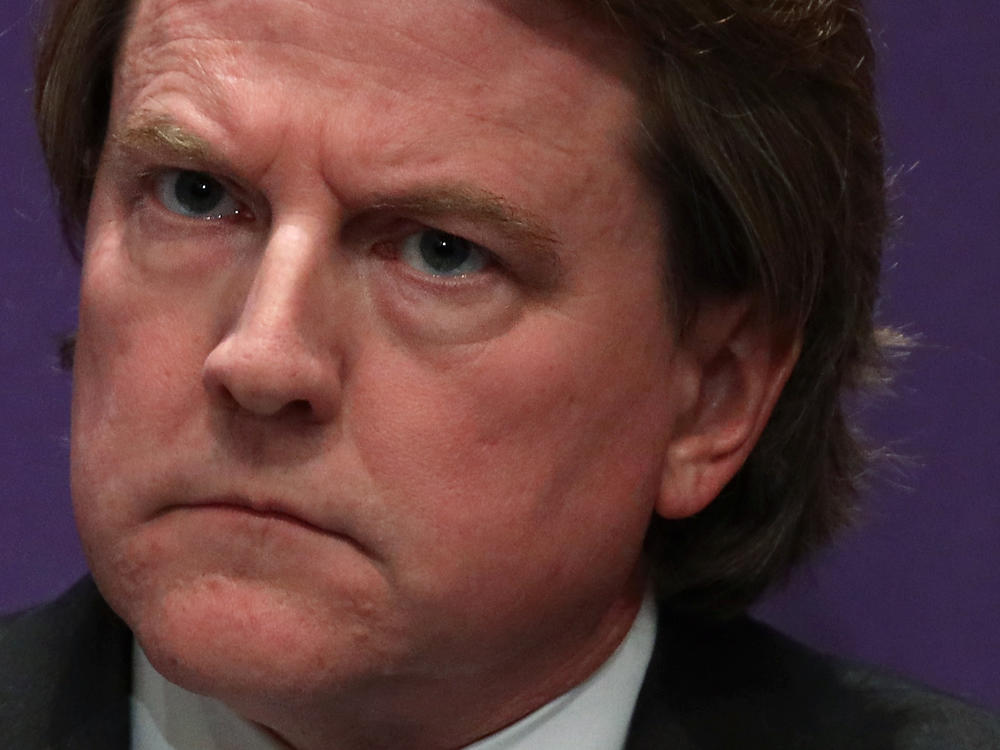Section Branding
Header Content
2 Years Later, Former White House Counsel Don McGahn Agrees To Testify
Primary Content
Former Trump White House counsel Don McGahn will testify before the House Judiciary Committee about his role in former special prosecutor Robert Mueller's Russia investigation, the panel announced Wednesday.
McGahn will speak only to committee members in private, under an agreement negotiated by his attorneys, the committee and the Justice Department. The interview will be conducted "as soon as possible" and a transcript will be released publicly shortly thereafter, according to the court filing.
McGahn served as the campaign attorney for former President Donald Trump's 2016 presidential run and later as his White House counsel until 2018.
The agreement settles a nearly two-year court battle over McGahn's refusal to testify before the Judiciary Committee. It first subpoenaed McGahn in 2019 after Mueller's report indicated he would be knowledgeable of multiple allegations of obstruction committed by Trump. His administration prevented key White House advisers from testifying in the committee's review of the Mueller investigation.
The interview will be limited to information attributed to McGahn in the publicly available portions of the Mueller report, as well as events that involved him personally. He can decline to answer questions that go beyond that scope. Attorneys for the Justice Department may also tell McGahn not to answer certain questions.
McGahn can be asked, however, whether he believes the Mueller report accurately reflects his statements during the investigation and whether those comments were truthful.
Judiciary Committee Chairman Jerry Nadler said in a statement Wednesday, "I am pleased that we have reached an arrangement that satisfies our subpoena, protects the Committee's constitutional duty to conduct oversight in the future, and safeguards sensitive executive branch prerogatives."
Copyright 2021 NPR. To see more, visit https://www.npr.org.

